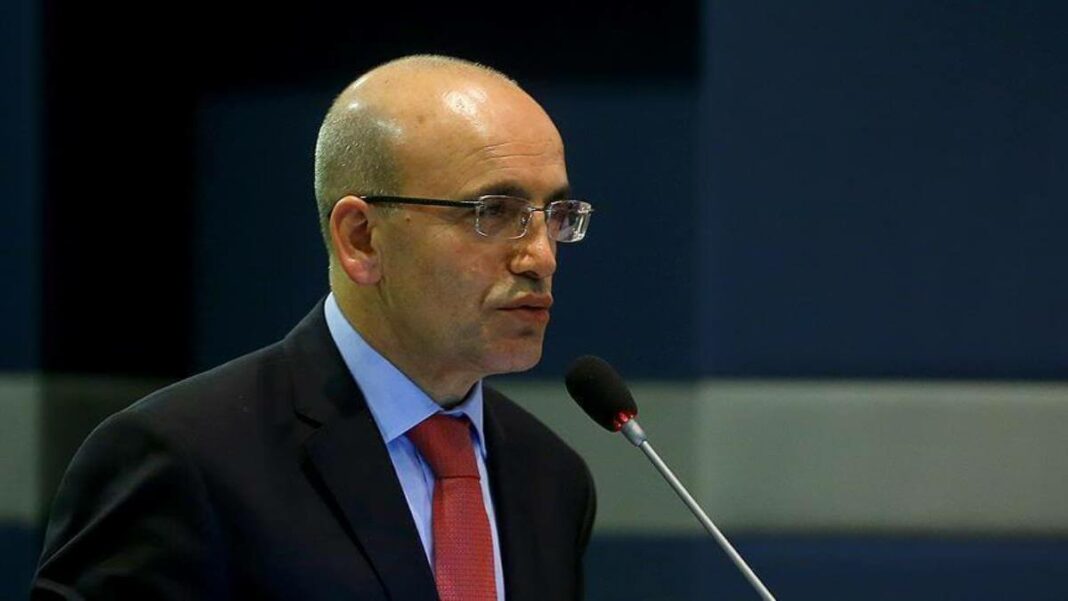Turkish Finance Minister Mehmet Şimşek reiterated the government’s commitment to strengthening an economic program aimed at reducing the country’s high inflation to single digits by 2026, in his first statement following Sunday’s local elections, Turkish media reported on Monday.
Turkey’s local elections dealt the biggest blow in more than two decades to President Recep Tayyip Erdoğan and his ruling Justice and Development Party’s (AKP). The party not only failed to wrest back control of İstanbul and the capital Ankara from the opposition, but lost ground in the country’s other major cities, including in the conservative Anatolia region, which had been considered an AKP stronghold.
Turkey’s high inflation, which stood over 65 percent in February, and the continued loss in value of the lira, which significantly decreased Turks’ purchasing power, have been shown by observers as being among the main reasons behind the loss of support for the AKP.
Şimşek on Monday released his first message on X after the elections, saying the government would continue to implement its medium-term program announced in September 2023, strengthening it along the way.
Mahalli seçim sonuçları milletimiz ve ülkemiz için hayırlı olsun.
Eylül 2023’te açıkladığımız Orta Vadeli Programımızı (OVP) güçlendirerek kararlılıkla uygulamaya devam edeceğiz.
Ana hedefimiz olan enflasyonu kalıcı olarak tek haneye düşürmek için sıkı para, seçici kredi ve…
— Mehmet Simsek (@memetsimsek) April 1, 2024
The minister said his ministry would prioritize savings by implementing tight monetary policy in addition to controlling public spending as part of its main goal of reducing inflation to single digits.
He added that structural reforms will be implemented in line with the plan announced in the program to “achieve transformation in the economy and increase productivity and competitiveness.”
“Thus, by achieving sustainable growth, we will ensure that the resulting permanent increase in prosperity is shared by all segments of society,” Şimşek said.
Sunday’s local elections took place against a dark economic backdrop — 67 percent inflation and a massive loss of value in the lira, which has affected the lives of most Turks, with economy experts warning that monetary and fiscal tightening would further increase after the polls.
Turkey’s official annual inflation rate peaked at 85 percent in October 2022 and climbed back up to 67.1 percent last month, according to official data.
Meanwhile, retail prices in İstanbul, Turkey’s largest city and commercial hub, rose by 78.25 percent annually in March, data from the İstanbul Chamber of Commerce (İTO) showed on Monday.
More than a decade has passed since Turkey received an investment grade rating from Fitch. However, from 2017 onwards, the country suffered a series of five downgrades, mainly due to Erdoğan’s economic strategies, which boosted economic growth while jeopardizing the value of the lira and price stability.
Faced with a financial crisis characterized by a rising cost of living and a decline in foreign investment, Erdoğan recalibrated his approach after his re-election in May.
Since last year’s elections, which gave Erdoğan another five years at the helm, Turkey has taken more aggressive steps to tighten monetary policy than expected, which has helped to lower inflation expectations and reduce external liquidity risks.
Şimşek, who was appointed in June to help lead the policy U-turn, said Turkey has no choice other than to return to “rational ground,” adding that a rules-based, predictable Turkish economy will be the key to achieving prosperity.

